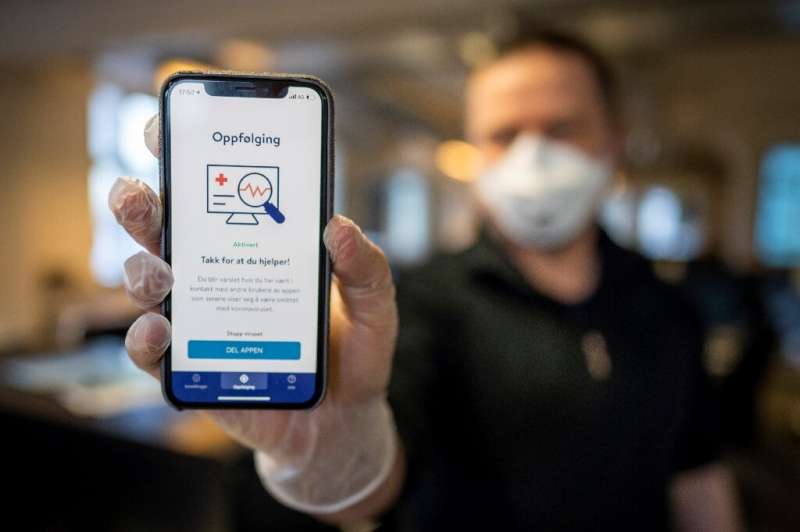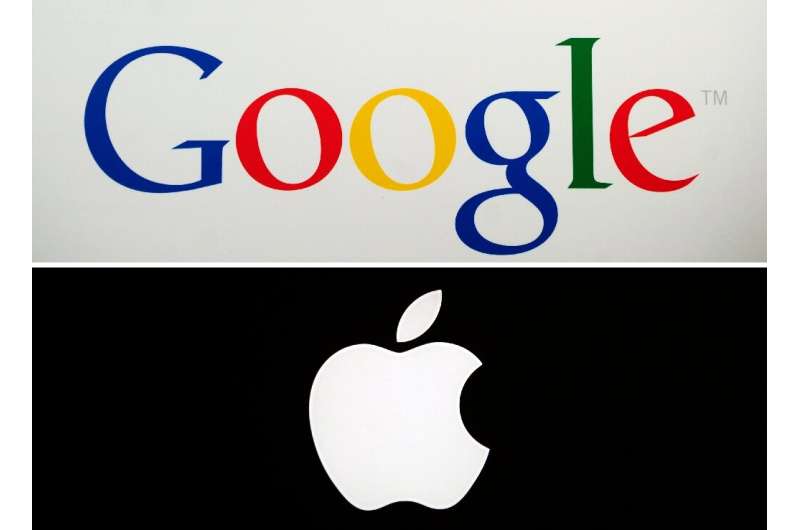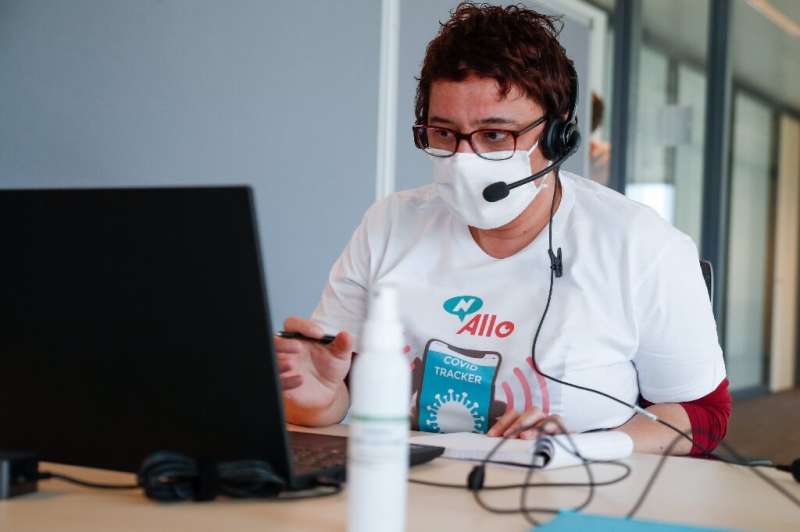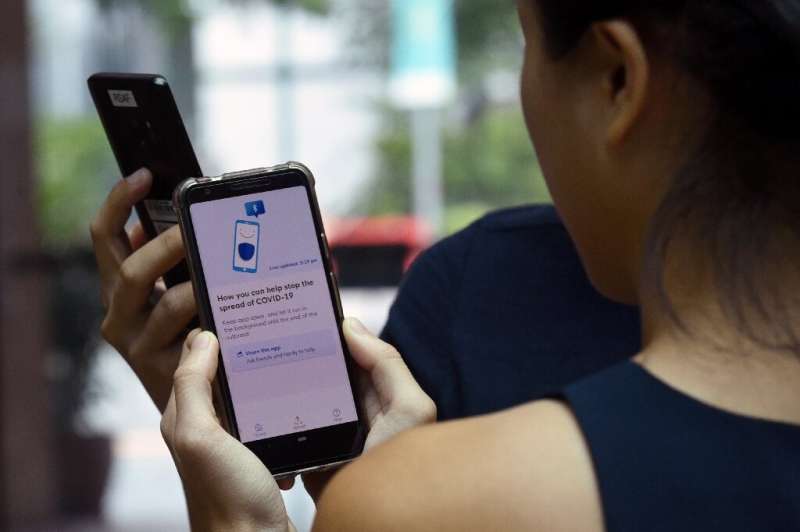US virus tracking: a patchwork of apps, human tracers

Digital or manual? Bluetooth or GPS? Centralized or decentralized?
Efforts in the United States to track the spread of the deadly novel coronavirus—known as contact tracing—have become a patchwork based on differing approaches to technology and civil liberties.
Some US governors have shunned digital tracing efforts, instead hiring thousands of human contact tracers to locate people who have been near an infected individual.
Others see smartphone apps—which use Bluetooth wireless sensing and deliver automatic alerts when people have crossed paths with an infected person—as the only way to scale up the effort to reach people at risk of spreading the disease.
With both systems, concerns remain over privacy and government surveillance.
An Apple-Google platform designed with wireless Bluetooth beacons is aimed at easing the path to digital contact tracing by allowing smartphones using the two dominant systems to communicate with each other.
The system unveiled by the big tech firms this week has been made available to 22 countries but has been adopted so far for apps in just three US states.
Some jurisdictions are seeking centralized control through health agencies and to use satellite GPS location—which the tech firms won't allow due to concerns over privacy and civil liberties.
Privacy activists are divided on the tradeoffs of mobile technology for virus tracking.

"We don't yet know if any of these technologies will work, but we do know that we currently lack many of the protections needed to guard against abuse or overreach," said Neema Singh Guliani of the American Civil Liberties Union.
But Jules Polonetsky of the Future of Privacy Forum, a nonprofit research group, said the Google-Apple system strikes the right balance on privacy because it keeps data on users' devices until they choose to share it.
"Relying on such apps is in my view a potentially helpful supplemental safety measure that fills a gap created by the current challenges," Polonetsky said in a blog post.
Location tracking
Several US states are launching their own apps without Google and Apple—a situation similar to that in Europe where competing tracing systems are being developed.
Rhode Island's "Crush Covid" app was developed by India-based tech firm Infosys and uses GPS-based location sensing, location maps and push notifications.
Utah's Healthy Together app uses a similar system while promising to delete location and Bluetooth data after 30 days.
Some officials have pressed Google and Apple to allow the use of location data in its API, or application program interface.
Polonetsky noted that any changes "will affect users in every country in the world, creating risks that governments could misuse the API for law enforcement or for human rights abuses."

Lauren Sarkesian of the New America Foundation's Open Technology Institute noted that to get wide participation, "governments and app providers must ensure that strong privacy protections are in place, especially by avoiding collection of sensitive location data."
To be effective, digital tracing needs buy-in from at least 40 to 60 percent of a population, according to some researchers.
In Utah, 45,000 people, less than two percent of the population, downloaded the tracing app in the first month it was available.
A poll by research firm PSB found two-thirds of Americans distrust the government with their personal data in dealing with the COVID-19 outbreak.
"Although contact tracing is essential for public health, Americans' distrust in the government's ability to safeguard data lowers the trade-offs of sharing personal data for the public good," said Chris Foster of PSB parent firm BCW.
Claire Standley, a professor at the Georgetown University Center for Global Health Science and Security, said digital tracing efforts may be hampered by a low rate of adoption and competing systems.
"If incompatible apps are used, it could make it much more challenging to track people if they move between jurisdictions," she said.
Tracer armies
Some large US states have opted for old-fashioned contact tracing by hiring people to call those at risk of infection, a painstaking process which has its own challenges.

Early estimates indicated 100,000 new tracers would be required for the United States, while some experts say the need is far greater.
More than a dozen public health experts urged Congress in an open letter to appropriate $12 billion to vastly expand the number of contact tracers to 180,000.
New York is hiring an estimated 17,000 tracers and California at least 10,000. Massachusetts took the lead with the hiring of 1,000 people and similar efforts are underway in Maryland, Virginia, Indiana and other states.
Albert Gidari, consulting director of privacy at the Stanford Center for Internet and Society, said digital Bluetooth systems will be faster and better than the slow and imprecise manual contact tracing, which relies on people's memory, and may not identify encounters with people who don't know each other.
A manual system "requires you to disclose personal information to a stranger who works for the government without the faintest idea of who will see, how it is stored or how long it will be kept," Gidari told an online conference organized by the Center for Democracy and Technology.
Some experts say the virus is so challenging it requires a massive effort in both digital and human contact tracing.
"There may be additional benefit in including digital technologies alongside traditional human contact tracing," Standley said.
© 2020 AFP





















